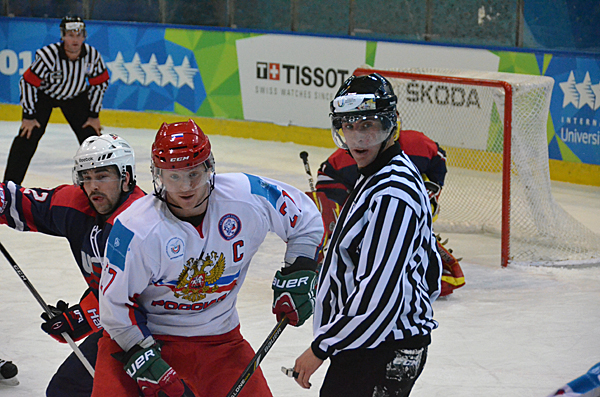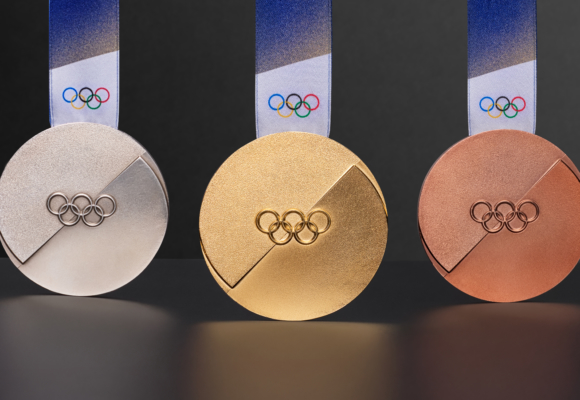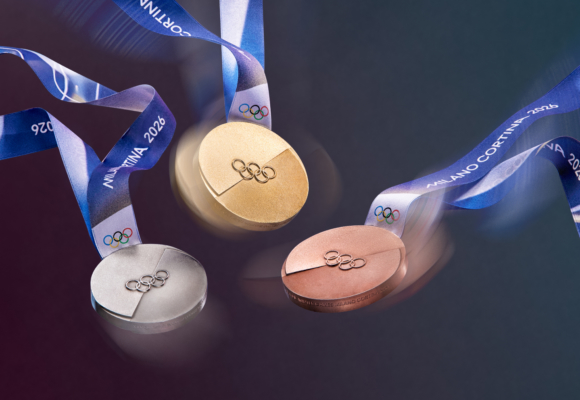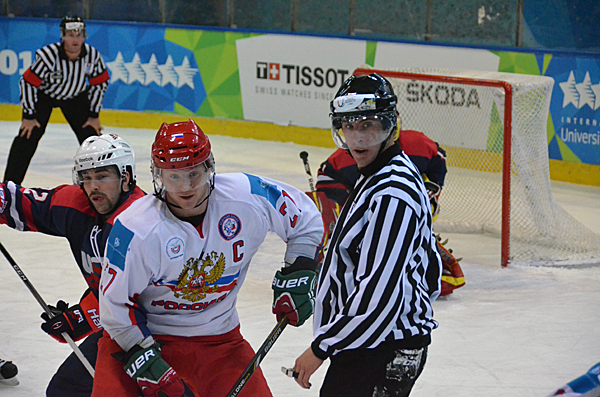 RUS beats USA 6-2 to grab the bronze medal
RUS beats USA 6-2 to grab the bronze medal
CANAZEI – In 2001, a relationship with USA Hockey would drastically change the landscape of the American Collegiate Hockey Association.
The conference was asked to select players to represent the USA at the Winter Universiade. 12 years later, the relationship is as strong as it ever has been and it’s paying off on the ice.
“It’s great recognition for our league,” said Brian McGinty, a forward from Arizona State University. “We’ve got some really good players on the team so it should generate some more attention.”
The Americans came home with a four-placed finish after they were beaten in the bronze medal game by Russia, 6-2. Fourth place is the best result that the men have ever had at a Universiade. For Russia, who won gold at the last two Universiades, it marks their sixth straight tournament where they have medalled.
While the USA ended the tournament with back-to-back defeats, ACHA commissioner Brian Moran said he couldn’t be happier with their performance at the Universiade.
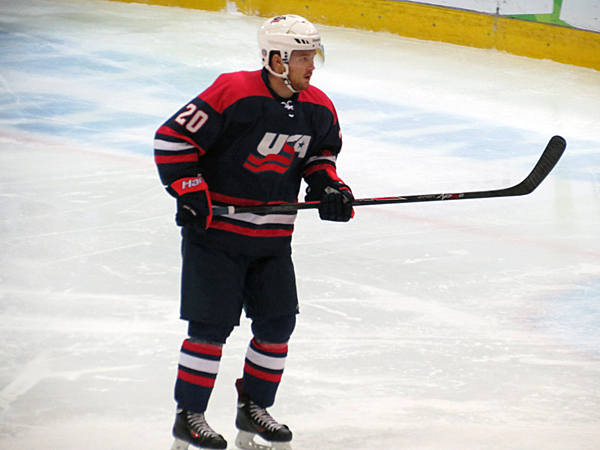 USA forward Brian McGinty says that the Universiade has put ACHA hockey on the map
USA forward Brian McGinty says that the Universiade has put ACHA hockey on the map
“This is probably the first time we’ve had our best team and it’s showed as we made the semi-finals for the first time. We’ve played great.”
Their commitment to the Universiade has grown too, as this year head coach Scott Balboni had one job only; to scout players for the team.
2013 was also the first year that players didn’t have to pay their own way to the games as USA Hockey covered all expenses this year.
“Getting the money from USA Hockey comes with a little added pressure. There was definitely pressure this time to have a better result and getting in the top four is a start,” Moran said.
While McGinty is disappointed to leave without a medal, he says that his teammates should be proud of what they have achieved. “We’ve accomplished a lot more than we realize.”
Matt Tidcombe, FISU Young Reporter
